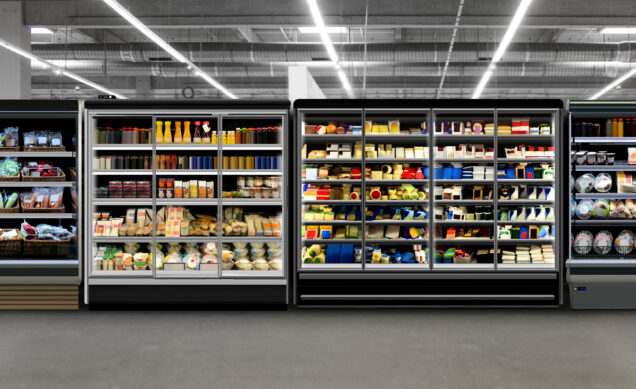In the dynamic world of commercial operations, refrigeration plays a pivotal role in preserving perishable goods, maintaining food safety standards, and ensuring the quality of products. However, navigating through the myriad of options available in the market to select the most suitable refrigeration system for your business can be daunting. In this comprehensive guide, we will delve into the various types of commercial refrigeration systems, explore essential factors to consider when making a selection, and provide valuable insights to empower you in making an informed decision for your business.
Types of Commercial Refrigeration Systems
Reach-In Refrigerators and Freezers: Reach-in refrigerators and freezers are workhorses in commercial kitchens and foodservice establishments, offering convenient access to stored items. These units come in a variety of sizes and configurations, ranging from single-door to multi-door setups, to accommodate diverse storage needs. They are commonly used for storing perishable goods, ingredients, and prepared foods at safe temperatures.
Walk-In Coolers and Freezers: Walk-in coolers and freezers provide ample storage space and are designed to accommodate bulk items or large quantities of perishable goods. These units are commonly found in supermarkets, warehouses, restaurants, and food distribution centers. Walk-in coolers and freezers offer versatility in terms of size, configuration, and temperature control, making them an indispensable asset for businesses with extensive storage requirements.
Display Cases: Display cases are essential for showcasing perishable products while maintaining optimal temperature and visibility for customers. These units are commonly used in grocery stores, delis, bakeries, and convenience stores to present items such as meats, cheeses, dairy products, and baked goods. Display cases come in various styles, including deli cases, bakery cases, meat cases, and seafood cases, allowing businesses to tailor their presentation to suit their unique offerings.
Blast Chillers and Freezers: Blast chillers and freezers are designed to rapidly chill or freeze food items, minimizing bacterial growth and preserving food quality. These units are commonly used in commercial kitchens, catering operations, and food processing facilities to safely cool down hot foods or freeze perishable items quickly. Blast chillers and freezers help businesses comply with food safety regulations and maintain the integrity of their products.
Undercounter Refrigerators and Freezers: Undercounter refrigerators and freezers are compact, space-saving solutions that are ideal for smaller kitchens or areas with limited space. These units are commonly used in bars, cafes, restaurants, and food trucks to store drinks, condiments, and ingredients at safe temperatures. Undercounter refrigerators and freezers offer convenience and accessibility without compromising on performance or reliability.
Factors to Consider When Choosing a Commercial Refrigeration System
Size and Capacity: Assess your business’s storage needs and available space to determine the appropriate size and capacity of the refrigeration system. Consider factors such as the volume of perishable goods handled, the frequency of restocking, and future growth projections to ensure that the selected system can accommodate your business’s requirements.
Energy Efficiency: Look for ENERGY STAR certified units that are energy-efficient and can help reduce operating costs. Opt for refrigeration systems with features such as LED lighting, energy-efficient compressors, and advanced temperature control technologies to minimize energy consumption while maintaining optimal performance.
Temperature Range: Consider the specific temperature requirements for storing different types of perishable goods, such as chilled or frozen products. Choose a refrigeration system that offers precise temperature control and flexibility to accommodate a wide range of products, ensuring that each item is stored at the optimal temperature to maintain freshness and quality.
Durability and Reliability: Invest in high-quality refrigeration equipment from reputable brands to ensure durability and reliability. Choose units constructed from robust materials with sturdy construction and reliable components to withstand the rigors of daily use in a commercial environment. Prioritize units with warranties and comprehensive service agreements to provide peace of mind and minimize the risk of downtime due to equipment failures.
Installation and Maintenance: Select a refrigeration system that is easy to install and maintain, with accessible components and reliable service support. Ensure that the chosen system is compatible with your existing infrastructure and can be installed seamlessly without disrupting your operations. Invest in regular maintenance and servicing to keep your refrigeration system running smoothly and maximize its lifespan.
Selecting the right commercial refrigeration system is essential for ensuring the freshness, safety, and quality of your products while optimizing operational efficiency and minimizing operating costs. By considering factors such as size, capacity, energy efficiency, temperature range, durability, and maintenance requirements, you can make an informed decision that aligns with your business’s needs and goals. With the right refrigeration system in place, you can enhance food safety, streamline operations, and drive business success in today’s competitive marketplace.
Ready to upgrade your commercial refrigeration system? Contact Mission Mechanical today at 317-733-8686 to explore our comprehensive range of commercial refrigeration solutions and schedule a consultation with our expert team. With our expertise and dedication to quality service, we’ll help you choose the perfect refrigeration system to meet your business’s unique requirements and maximize your operational efficiency.




